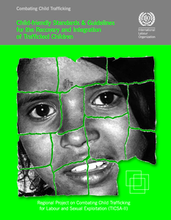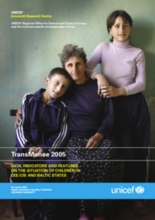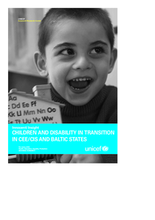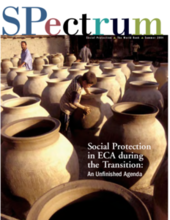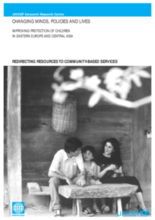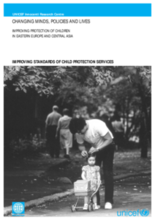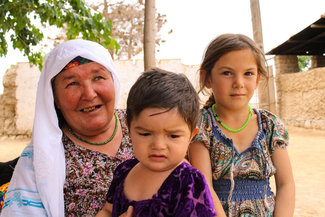

Displaying 101 - 110 of 114
Standards for shelters and care providers responding to children who have been trafficked. It gives guidance and practice examples of intake procedures, interim and longer term care, support services, integration and reunification
A website that contains statistical information on children in 27 countries across Central and Eastern Europe. The site contains relevant child protection indicators, including the number of children in institutional care.
This report reviews the faltering progress made in childcare reform across Central and Eastern Europe and the former Soviet Union over the 15 years since the ‘orphanages’ of Romania were revealed to the world.
The TransMONEE statistical tables display indicators of human welfare in the 27 countries of CEE/CIS and Baltic States. Population, natality, maternal and child mortality, health, education, child protection and economics serve as the key indicators.
This report examines the social and economic trends and challenges affecting children in CEE/CIS and the Baltic States. Social orphanhood, maternal and infant mortality rates, deaths from accidents and injuries, infectious disease, and low public health expenditures are addressed.
Report presents and analyzes new research and data around children with disabilities in the region, the effects of institutional care, and the need for family support services.
Provides a brief overview of child welfare reforms implemented in the ECA Region and the collective effort to move away from over-emphasis on institutional care through the Changing Minds, Policies and Lives Project.
Provides an overview of social service provision in Eastern Europe and Central Asia, and provides information on ways to move resources away from institutional care, and into community-based social services. Contains specific examples from Latvia, Iceland, Sweden, Romania and other transitioning countries.
Contains practical tools and policy guidance for family and child welfare policy makers and practitioners. Relevant topics include gatekeeping, redirecting resources into preventive and family based services, and standards of care.
A research study on the policies, finances and current state of care of vulnerable children in Tajikistan. Includes data on budgeting and expenditures around institutional care, as well as recommendations for the creation of short-term and long-term care alternatives.

